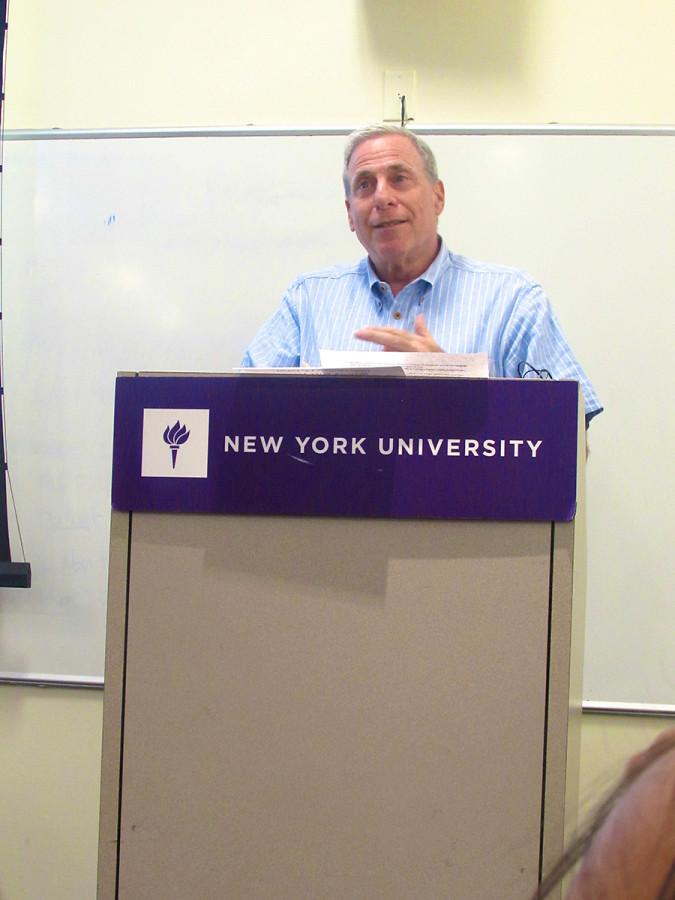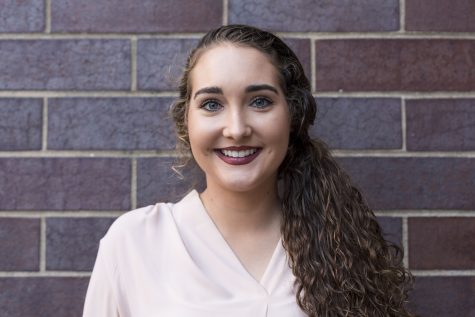Politics Society discusses Iran nuclear deal
Professor Bruce Bueno de Mesquita discusses the Iran Nuclear deal with the NYU Politics Society
September 18, 2015
Students of all political affiliations gathered at the NYU Politics Society’s kick off event to discuss the Iran nuclear deal with distinguished professor Bruce Bueno de Mesquita on Thursday night.
The director of the NYU Alexander Hamilton Center for Political Economy, de Mesquita is one of the authors of the political science selectorate theory and has been featured on CNN, The Daily Show with Jon Stewart and the Colbert Report. Mesquita said the inspection of the regime is the weak link of the deal.
According to a New York Times briefing, the nuclear deal will require Iran to reduce its stockpile of enriched uranium by 98 percent, and the deal will limit Iran’s research and development for 15 years.
A key point of contention against the Iran nuclear deal is the possibility that Iran will continue to illegally enrich uranium and plutonium given the country’s history of evading the surveillance of its manufacturing facilities and military sites.
“The United States’ position was that we should be free, or the International Atomic Energy Agency should be free, at any time to inspect on instant notice” de Mesquita said. “Now instead, the deal is that Iran gets 24 days to allow the inspection, and for a particular site, they will be able to complete the inspection and turn the sampling over to the IAEA.”
However, de Mesquita said significant worry should not be paid to how the United States will know the deal is being abided by.
“If one is building a nuclear weapon, one has to do tests,” de Mesquita said. “The hardest part of a nuclear weapon is the trigger. It in itself is an explosion, and you have to test it. It is a seismic event that is readily detected. This is why it will be very hard for Iran to cheat.”
CAS senior and NYU Politics Society events director Matthew Glaser said he looked at the deal from a pragmatic perspective and said compromise was necessary to find stable ground between the U.S. and Iran.
“Where we are with the Iran Deal is the best agreement that could have possibly been produced,” Glaser said. “You have to come to a middle ground, and utilize your resources to get to an optimal deal. It might not be what everyone wants, but it is what can be done to reconcile between the two countries’ positions.”
With over a hundred students and faculty in attendance, the crowd contained a wide range of political leanings. CAS junior and NYU Politics Society president Will Lockwood said the presentation tried to make this issue accessible to everyone regardless of political affiliation.
“From a nonpartisan viewpoint, I acknowledge that there are a lot of reasons to be skeptical about the deal, but there are also a lot of reasons to be happy that it is in place,” Lockwood said. “From my own personal perspective, I am a Democrat, and I would call the nuclear deal with Iran a remarkable diplomatic achievement.”
Ultimately, de Mesquita said we should be reasonably confident that each side got the best deal they could, and neither country could have benefited more from the agreement.
“The length of the negotiations, the intensity of the negotiations, suggests that both sides had a lot of opportunity to learn about the costs and benefits calculation about each other,” Beuno de Mesquita said. “That says to me, the deal was a reasonably good deal. It was an acceptable deal.”
Email Lexi Faunce at [email protected].

























































































































































